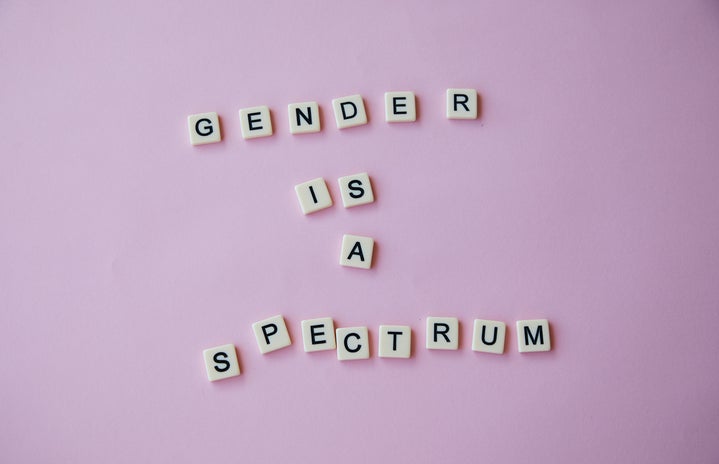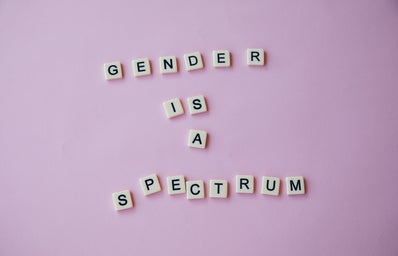During my late teens, I learned so much about myself. Not only about what sports I liked to watch, but also what I enjoyed wearing, from my shoes to the way I wore my hair. Learning about the binary genders and the limitations they brought with them was disheartening because I felt that I had a masculine and feminine side. Not only that, but I felt that I didn’t want to identify as any set gender because every day was different and continues to be that way for me.
An important lesson that I learned on this journey was that how people dress doesn’t always align with how they identify. This is especially true for me since I enjoy wearing crop tops, skirts, makeup and such things that are stereotypically identified as feminine. So, how are you supposed to figure out what applies to you?
Do you even know if you’re experiencing gender dysphoria? Well, here are some questions that can bring light to some of your concerns. Think about how you react to binaries set out in society. Do slogans like “Easy, breezy, beautiful. Covergirl” make you feel isolated or put into a box if you use makeup?
Unfortunately, something non-binary people, such as I, do is try to detach the notion of gender from things as simple as pads or tampons. Even buying shoes or shirts from the other side of the store can feel daunting because of the prying boomer eyes.
Your continued frustration with gender norms and the expectation that you exhibit specific characteristics may signal dysphoria. This means that you object to being addressed as “miss” or people just assuming you identify as a woman because you’re wearing make-up and a dress, for example.
The first step through these new feelings is accepting them and the idea that you may not fit into specific binaries. Knowing yourself and learning more about whom you want to be is essential in building your sense of identity. What clothes make you feel shy versus confident? Do you feel more relaxed and yourself wearing a dress rather than jeans? These are the kinds of questions that help you understand how your self-expression relates to your gender identity.
Since the way we present ourselves tends to be linked to how we identify and sometimes feel, it’s disheartening to learn that there’s a lack of noticeable diversity within the beauty industry. So, you might not feel like you should be shopping for pants or shoes in the men’s section at Winners.
However, learning more about influential figures in the beauty and entertainment industries such as Cara Delevingne, Elliot Page, Miley Cyrus and Demi Lovato and learning about their journeys to discovering their true selves is one way to feel more included in our communities.
Reaffirming your identity to yourself is vital. You’re allowed to exist however you choose as long as you don’t harm others. Gender is a societal construct and should be bent in every which way. Acceptance will play such a vital role in your ability to feel comfortable in whatever community you choose to be a part of. You‘re the only person who tells you who you are.


